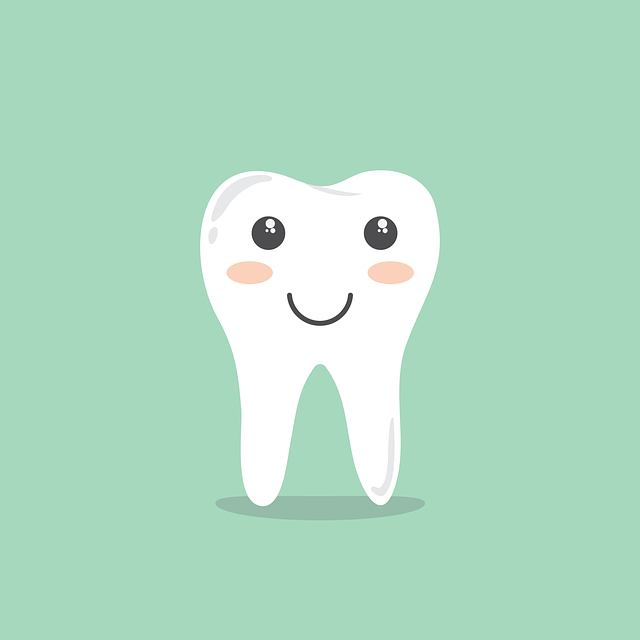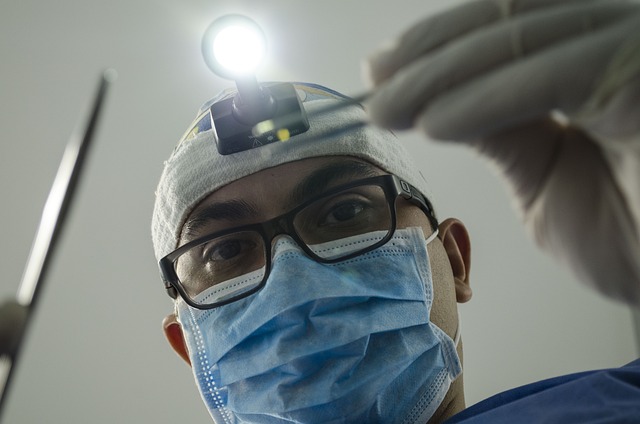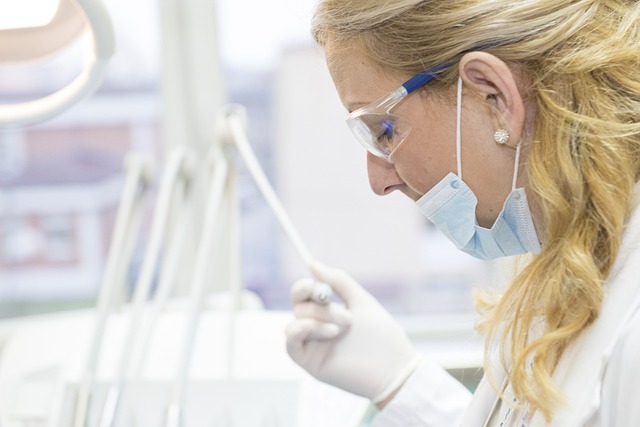Lingering Dental Questions: Post-tooth extraction care with Listerine?
????Welcome to our informative article on lingering dental questions! Today, we are diving into the world of post-tooth ????extraction care and one product that often comes to mind: Listerine. If you’ve recently had a tooth extraction or are considering one in the near future, you might be wondering if Listerine ????is a suitable option???? for maintaining your oral health during the recovery process. In this article, we will explore the benefits, precautions, and recommendations???? for using Listerine after tooth extraction. So, grab a cup of tea and get ready to explore this friendly guide to optimal post-tooth extraction care with Listerine!
1.???? The Importance???? of Proper Post-Tooth???? Extraction Care: Exploring Lingering Dental Questions
So, you’ve just had a tooth extraction???? - a???? not-so-pleasant experience, we know! But fret not, because???? taking proper care of your mouth after the procedure can make all the difference in your recovery and overall oral health.???? With that in mind, let’s dive into some frequently asked questions surrounding post-tooth extraction care.
Why is post-tooth extraction care so important?
1. Preventing infection: After a tooth extraction, a blood clot forms to protect the socket and promote healing. If this clot becomes dislodged, it can lead to a condition???? called dry socket, which???? increases the risk of infection. Proper care prevents complications and reduces the chance of developing painful infections.
2. Promoting healing: Following your dentist’s aftercare instructions facilitates the healing process. By maintaining good oral hygiene, you can reduce the risk ????of complications, minimize pain, and speed up recovery time. Remember, a healthy ????mouth leads to a happy life!

2. Understanding the Role of Listerine in Post-Tooth Extraction Care: Answers to Your ????Lingering Questions
When it comes to ????post-tooth extraction care,???? many people wonder about the role of Listerine and its benefits. We’re here to answer some of your lingering questions and ????provide you with the information???? you ????need for a smooth recovery.
The Benefits of Using Listerine:
-
????
- Kills Bacteria: Listerine is an antiseptic mouthwash that helps eliminate bacteria in your mouth. Using ????it after a tooth extraction can help prevent infection and promote healing.
- Reduces ????Swelling and Discomfort: Rinsing your mouth with Listerine can help reduce swelling and discomfort after a tooth extraction by soothing the area and providing a refreshing sensation.
- Promotes Oral Hygiene: Listerine’s powerful formula???? not only cleanses your mouth but also reaches areas that your toothbrush may miss. This ensures that your mouth remains clean and free from harmful bacteria, reducing the risk of complications after the extraction.
How to Use Listerine After a Tooth Extraction:
Here’s a simple step-by-step guide on incorporating Listerine into your post-tooth extraction care routine:
-
????
- Gently rinse your???? mouth with warm saltwater as prescribed by your dentist.
- Wait for 24 hours after the extraction before introducing Listerine into your routine.
- Dilute the Listerine with an equal amount of water to reduce any potential irritation.
- Swish the diluted Listerine around your ????mouth for 30 seconds, making sure to reach the extraction site.
- Spit out the mouthwash gently, without rinsing your mouth afterwards.
- Repeat this routine twice a day or as recommended by your dentist for a few days following the extraction.
????
????
????
3. ????A???? Friendly Guide to Post-Tooth Extraction Care: How Listerine Can Help
After a tooth extraction, taking proper care of your mouth is essential for a speedy recovery. Fortunately, one product that can provide immense benefits during this crucial period is Listerine. Here’s how this trusted mouthwash brand can help you in your ????post-tooth extraction care:
1. Prevents infection: Listerine contains powerful antiseptic ????properties that help kill bacteria in your mouth, reducing the risk of infection. Rinse your mouth with Listerine twice a???? day to keep the extraction site clean and free from harmful microorganisms.
2. Reduces???? swelling and pain: Extracting a tooth can cause ????swelling and discomfort. Listerine’s anti-inflammatory properties can help alleviate these symptoms. Prepare a Listerine rinse by diluting it with water, then swish it gently around your mouth for 30 seconds. Doing this multiple times a day can provide relief???? and aid in the healing process.
After a tooth extraction, it’s important to maintain good oral hygiene to promote healing and prevent infection. One common myth is that using Listerine, a popular mouthwash, is an effective solution for post-tooth extraction care. However, it’s essential to debunk this myth and understand the facts. Listerine, containing ingredients like alcohol and essential oils, may provide temporary relief from bad breath and ????a fresh feeling in the mouth, but it’s not recommended as a post-extraction solution. The alcohol content can cause irritation, potentially delaying the healing process. Additionally, strong mouthwashes may dislodge blood clots???? or disturb the formation of???? a protective blood clot in the extraction???? site. ???? Instead of using Listerine or similar ????mouthwashes after a tooth extraction,???? here are some tips to ensure proper post-extraction care: ???? By following these alternatives, you can ensure proper care and an optimal???? healing process after a tooth extraction. Remember to always consult your dentist for personalized advice based on your ????specific dental needs. Once you’ve undergone a tooth extraction, it’s important to take proper care of your oral health to ensure a smooth recovery. Incorporating Listerine into your routine ????can be beneficial during this post-extraction phase. Here’s a step-by-step???? guide to help you integrate Listerine???? into your post-tooth extraction care routine: 1. Wait for the right time: It’s crucial???? to allow your mouth to heal before using Listerine. Consult your dentist to determine the appropriate duration to wait after your extraction. 2. Gentle rinsing with Listerine: Dilute Listerine with equal parts water to create a gentle rinse. Swish this mixture in your mouth ????for about 30 seconds, making sure to reach all the corners. This???? not???? only helps kill bacteria but also provides a soothing effect to the affected area. 3. Avoid rinsing too vigorously: Be careful not to rinse too forcefully as it may disrupt???? the blood clot that forms in the extraction site. Gentle ????swishing will suffice. 4. Frequency of rinsing: Incorporate Listerine rinses into your oral care routine, but do not exceed the recommended frequency. Consult your dentist???? to determine how often you should rinse with Listerine. By following these steps,???? you can effectively incorporate Listerine into???? your post-tooth extraction care routine. Remember, it’s always best to consult your dentist for personalized advice and recommendations. Together with Listerine and diligent ????oral care, your mouth will be on its way to a speedy recovery. After a tooth extraction, proper oral care is ????crucial for promoting healing and preventing complications. Listerine, a well-known mouthwash, offers several benefits that can aid in this process. Incorporating Listerine into your oral hygiene routine following a tooth extraction can help you maintain a clean and healthy mouth. 1. Reducing bacteria: Listerine contains essential oils like eucalyptol, menthol, and thymol, which have powerful antibacterial properties. Rinsing with Listerine can help ????kill bacteria in your mouth, reducing the risk of infection and promoting healing. 2. Soothing properties: Listerine contains alcohol, which can provide ????temporary relief from pain and discomfort after a tooth???? extraction. Its cooling sensation can also help reduce swelling and inflammation in the gums. 3. Fresh breath: Listerine’s strong flavor helps eliminate bad breath-causing bacteria, leaving your mouth feeling fresh and clean. This can be particularly beneficial after a tooth extraction, as the extraction site may cause temporary bad breath. 4. Easy application: Using Listerine is a simple and convenient way to maintain oral hygiene after a tooth extraction. Simply swish the mouthwash around your mouth for 30 seconds, twice daily, after brushing your teeth. Remember not to rinse or spit forcefully for at ????least 24 hours after the extraction to avoid???? dislodging the blood clot. When it ????comes to preventing infections after a tooth extraction, Listerine can indeed play a valuable role in promoting oral health. Here are some key points to address concerns and shed light on how Listerine can aid in preventing infections: 1. ????Kills bacteria: Listerine contains powerful antiseptic properties that help eliminate bacteria in the mouth, including those that can cause infections. Rinsing with ????Listerine after a tooth extraction can help remove harmful bacteria and reduce the risk of infections. 2. Reduces plaque???? and gingivitis: Listerine not only kills bacteria but also helps reduce plaque buildup and prevent gingivitis. Using an antiseptic mouthwash???? like Listerine can help keep???? your mouth clean and free from harmful bacteria ????that may lead to infections. 3. Soothing???? and healing properties:???? Listerine can also provide soothing relief and promote healing after ????a tooth extraction. Its???? antibacterial and anti-inflammatory properties can help reduce discomfort and inflammation, allowing the extraction site to heal properly. 4. Convenient and easy to use: Listerine is widely available and requires no prescription. Incorporating a 30-second rinse into your daily oral care routine can be a simple yet effective way to prevent infections after a tooth extraction. While Listerine can be ????a helpful tool in preventing infections after a tooth extraction, it’s important to consult???? with your dentist or oral surgeon for personalized advice and recommendations tailored ????to your specific situation. When it comes to taking care of your???? teeth after a tooth extraction, brushing alone may not be enough. That’s where Listerine steps in to provide optimal post-tooth extraction care. By adding this extra step to ????your oral hygiene routine, you can ensure a smooth and healthy recovery. Listerine not only freshens your breath but also helps kill bacteria that can cause infections or complications. Here are some ways Listerine can benefit your post-tooth extraction care: By incorporating Listerine into your post-tooth extraction care routine, you can???? enhance the healing process and ensure better overall???? oral health. Remember to consult your dentist for personalized ????advice???? and ????recommendations. In ????order to ensure proper???? post-tooth extraction care, it’s important to use Listerine effectively. Here are some expert tips to help you navigate this crucial aspect of your recovery: 1. Choose the right Listerine product: Listerine offers various mouthwash options, so it’s essential to???? select the one that suits your specific needs. Opt for an???? alcohol-free formula to minimize any stinging or burning sensation ????in the healing area. ????The alcohol-free versions still provide the same benefits, such as killing bacteria and reducing plaque. 2. Wait before using Listerine: After a tooth extraction, it’s best???? to wait at least 24 ????hours before using any mouthwash, including Listerine. This allows time for proper blood clot formation in the ????socket, which is crucial for healing. Once this ????period has passed, you can start incorporating Listerine into your oral hygiene routine, but ????make sure to consult with your dentist or oral surgeon beforehand to ensure it’s safe for you. 3. Dilute if necessary: If you find Listerine too strong or irritating, you can dilute it with an equal part of water. This dilution helps minimize any discomfort while still providing the benefits of the ????mouthwash. 4. Be gentle when rinsing: Post-extraction, it’s crucial to avoid any ????vigorous rinsing or spitting, as ????this ????may disrupt the blood clot that has formed. Instead, pour a small amount of Listerine into your mouth and gently swish it around without creating excessive suction. ????Then, allow it to slowly trickle out of your mouth into the sink. Listerine, known for its refreshing mouthwash, has surprising healing benefits that can aid in dental recovery. Often used ????to kill bacteria and freshen breath, Listerine can also speed up the healing process and reduce discomfort after dental procedures. Here ????are some ways in???? which Listerine can enhance the healing process and provide relief: 1. Reduction of bacteria: Listerine contains powerful antiseptic properties that can help kill harmful bacteria in the mouth. By swishing with Listerine after dental surgery or procedures, you can minimize the risk of infections and promote???? faster healing. 2. Soothing of irritation: Listerine’s gentle cooling sensation can provide relief and soothe any irritation or inflammation caused by dental treatments. Rinsing with Listerine can help reduce discomfort, allowing ????you to recover with ease. Q: What should I do after getting a tooth extracted? Q: Can I use Listerine as a mouthwash after getting a tooth extracted? Q: What are the risks of using Listerine too soon after a tooth extraction? Q: How long ????should I wait before using???? mouthwash, including???? Listerine, after a???? tooth extraction? Q: Are there any mouth rinses recommended specifically for post-extraction care? Q: What other post-extraction care tips can you provide? Q: How ????long does it take for the extraction site to heal completely? Q: What should I do if I experience prolonged pain or complications following a tooth extraction? In conclusion, post-tooth???? extraction???? care is a crucial step in ensuring a speedy recovery and maintaining good oral health. While there may be lingering dental questions regarding the use of Listerine as a part of the aftercare routine, it is important to consider professional advice and personal preferences when making decisions. Remember, Listerine can be a valuable addition to your oral hygiene routine, but it should be used cautiously and in accordance with your dentist’s recommendations. As a powerful antiseptic, it can aid in reducing bacteria and plaque buildup, promoting a cleaner and ????healthier mouth. However, it is essential to bear in mind that Listerine should be used in conjunction with other recommended practices, such as gentle brushing, warm saltwater rinses, and ????maintaining a soft-food diet during the first few days???? after extraction. These combined efforts will help minimize discomfort,???? reduce the risk of infection, and???? accelerate the healing process. If you still have doubts or concerns, don’t hesitate to consult your dentist. They are the best resource for providing personalized guidance based on your specific needs and circumstances. Ultimately, post-tooth extraction care requires a holistic approach that focuses on a combination of diligent oral hygiene practices, regular dental check-ups, and attentive self-care. By following these guidelines, you can ensure a smoother recovery and the long-term???? health of your smile. So, keep those lingering dental questions at bay and embark on your post-extraction journey armed with knowledge and confidence. Your dental health deserves the utmost care, ????and with proper aftercare, you’ll be on the???? path to a comfortable and healthy smile in no time. 
Understanding the ????use of Listerine after tooth extraction
Alternatives for effective post-tooth extraction care
????
????
6. Listerine and Oral Health: Exploring its Benefits for After???? Tooth Extraction
7. Addressing Concerns: Can Listerine Aid in Preventing Infections after???? Tooth Extraction?
8. Beyond Brushing: The Extra Step with Listerine for Optimal Post-Tooth Extraction Care
9. Expert Tips for Using Listerine in Post-Tooth Extraction Care: Your Ultimate Q&A
10. Discover the???? Enhanced Healing Benefits: Unveiling the Power of Listerine in Dental Recovery
Frequently Asked Questions
A: After a tooth extraction, it’s crucial to follow specific aftercare instructions to ensure proper healing. Remember ????to keep the extraction site clean, control bleeding, minimize swelling, and prevent???? infection.
A: It’s generally recommended to avoid using alcohol-based mouthwashes like Listerine immediately after a tooth extraction.???? Alcohol can irritate and dry out the socket, delaying the healing process. It’s best to consult your ????dentist for suitable alternatives.
A:???? Using Listerine or any alcohol-based mouthwash too soon after an extraction ????can lead to ????a dry socket — a painful condition where the blood clot that forms in the socket becomes dislodged. This can delay healing and require additional treatment.
A: ????Dentists typically recommend waiting at???? least 24 to 48 ????hours before ????using any mouthwash, including Listerine, after a tooth extraction. This waiting period allows the blood clot to form and stabilize within the socket,???? aiding the healing process.
A: Yes, there are mouth ????rinses specially formulated for post-extraction care. Dentists often suggest non-alcohol antimicrobial rinses, such???? as chlorhexidine mouthwash, to help prevent infection and promote healing. Consult your dentist for personalized recommendations.
A: Apart from avoiding alcohol-based mouthwashes, it’s crucial to maintain good oral hygiene by brushing gently around the extraction site, avoiding hot liquids, using cold compresses???? to reduce swelling,???? and following a soft food diet. Always consult your dentist if you have any concerns.
A: Healing time can vary depending on the complexity of the extraction, your overall health, and adherence to aftercare ????instructions. Generally, it takes around one to two weeks for the extraction site ????to close and heal completely. However, full bone regeneration might take several months.
A: If you encounter prolonged pain, excessive ????bleeding, swelling, fever, ????or any other unusual symptoms after a tooth extraction, it’s important to ????contact your dentist immediately. They will be able ????to assess and address any potential complications to ensure your full recovery. Conclusion






